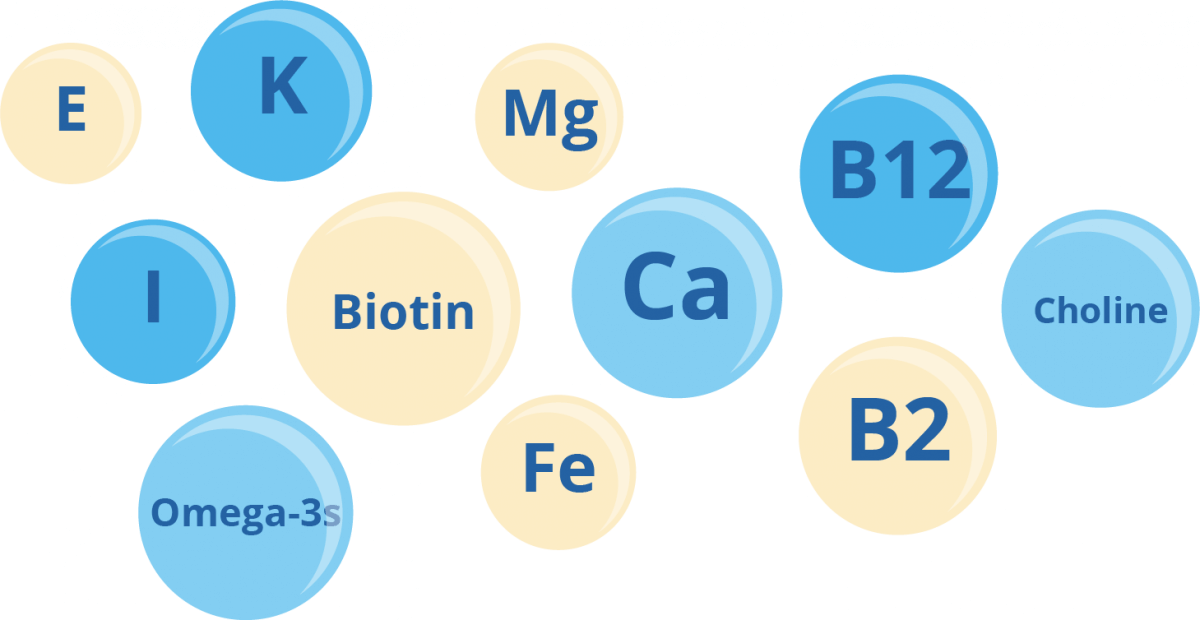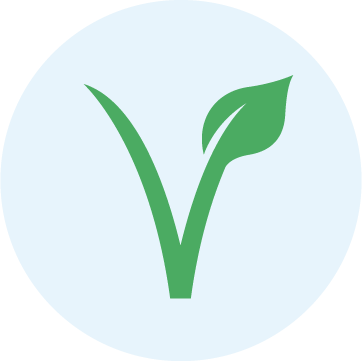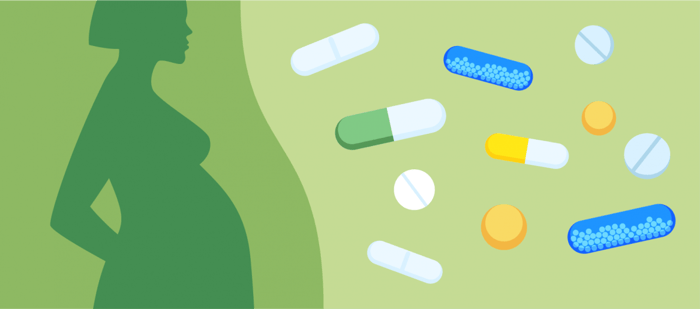Table of Contents
Embarking on the journey of pregnancy is an exhilarating adventure, filled with anticipation and joy. Yet, it also brings a sense of responsibility, especially when it comes to meeting the heightened nutritional needs essential for your growing baby. This responsibility becomes even more pronounced if you're embracing a vegan lifestyle.

Adhering to a plant-based diet during pregnancy requires careful consideration to ensure you and your baby receive all the vital nutrients for healthy development.
The challenge of balancing a vegan diet with the demands of pregnancy might seem daunting, but there's encouraging news. You can maintain your vegan principles and still provide the best for your baby. This guide will navigate you through choosing the optimal vegan prenatal vitamins, ensuring a nourishing pregnancy journey for both you and your little one.
Why Prenatal Vitamins are Essential
From the moment of conception, a fetus embarks on an intense growth journey, relying entirely on the mother for nutrition. This nutrition is transferred from the mother to the baby via the placenta, making a mother's diet fundamentally important. The initial stages of fetal development are particularly critical, and adequate maternal nutrition is key to ensuring healthy growth and minimizing long-term health risks for the child.
The concept of 'eating for two' during pregnancy isn't just a saying; it's a reality reflecting the increased nutritional demands on the mother. Essential nutrients are the building blocks for your baby's growth, and ensuring an adequate supply is vital for proper development.

However, getting all the necessary nutrients from diet alone can be challenging, especially during pregnancy. That's where prenatal vitamins come into play. They are designed to fill nutritional gaps and support both mother and baby's health.

For vegans and vegetarians, the need for prenatal vitamins becomes even more significant. A plant-based diet, while healthy, often requires careful planning to cover all nutritional bases, as it eliminates major food groups like meat and dairy. This can lead to a higher risk of certain nutrient deficiencies.
Pregnant vegans must be particularly vigilant, ensuring they get all the essential nutrients that might be missing from their diet. Vegan prenatal vitamins are tailored to meet these specific dietary needs, making them a critical component of a healthy vegan pregnancy.
The Optimal Timing for Starting Prenatal Vitamins
The initial stages of pregnancy are pivotal for fetal development, with crucial structures like the brain and spinal cord beginning to form. Therefore, the best practice is to start prenatal vitamins as early as when you're planning to conceive.

In fact, it's often advised that all women of childbearing age who could become pregnant consider prenatal vitamins as part of their regular supplement regimen. This proactive approach is beneficial because the earliest phase of pregnancy is crucial for fetal development, yet it often occurs before many women realize they're pregnant.
If you haven't started prenatal vitamins before conception, it's important to begin as soon as you discover you're pregnant. This ensures that your baby receives all the necessary nutrients during these formative stages.
Especially for vegan mothers-to-be, starting prenatal vitamins early is critical. Since vegan diets might lack certain nutrients essential for early fetal development, vegan prenatal vitamins help bridge this gap from the very beginning of pregnancy.
Key Factors to Consider in Vegan Prenatal Vitamins
Choosing the right prenatal vitamin is a crucial step in your pregnancy journey, especially when adhering to a vegan diet. While there are numerous options on the market, not all prenatal vitamins cater to the unique nutritional needs of a vegan pregnancy. As you embark on your search for the perfect plant-based prenatal supplement, there are several important considerations to keep in mind to ensure both your health and your baby's are optimally supported.
In the following sections, we delve into the specifics of what makes a prenatal vitamin ideal for vegan expectant mothers. From essential nutrients that are often lacking in a plant-based diet to the importance of certain vitamins and minerals for fetal development, we cover all the bases to help you make an informed decision.
1. Essential Nutrients & Optimal Forms

When pregnant, especially on a vegan diet, your nutritional requirements change significantly. Prenatal vitamins should be carefully chosen to include several key vitamins and minerals that support both your health and your baby's development. These include:
- Vitamin E
- Vitamin K
- Magnesium
- Choline
- Iodine
- Biotin
- Calcium
- Riboflavin
- Omega-3s
- Iron
- Vitamin B12
Particularly for vegans, nutrients like Omega-3s, Iron, and Vitamin B12 are critical as they are less prevalent in plant-based diets and are often needed in higher quantities during pregnancy.
Moreover, it's important to consider the forms of these nutrients in your prenatal vitamins. Not all forms of a vitamin are the same; for example, Vitamin B9 is available as folate (natural form) and folic acid (synthetic form). While many prenatal vitamins contain folic acid, some women, due to genetic variations like the MTHFR gene, may find it challenging to absorb this form. Therefore, it's crucial to consult with your healthcare provider to identify the most suitable form of these nutrients for your specific needs.
A. Omega-3 Fatty Acids
Omega-3 fatty acids, especially DHA, are vital for fetal brain and nervous system development. Pregnant women should aim for at least 200 mg of DHA daily. While fatty fish are common DHA sources, they aren't suitable for vegans. Plant-based options like walnuts and flaxseeds contain EPA, not DHA. Vegan mothers can turn to algae supplements, a plant-based source, to meet their DHA needs for healthy fetal development.
B. Vitamin B-12
For vegan diets, supplementing with Vitamin B12, recommended at 6 mcg, is crucial. B12 is vital for a healthy nervous system and helps prevent neural defects like spina bifida in babies. Since it's not found in plant-based foods, vegans often face B12 deficiencies. To ensure adequate intake, look for prenatal vitamins with higher B12 levels or consider a separate B12 supplement.
C. Iron
Iron, typically found in meat, eggs, and seafood, is crucial for making hemoglobin, which transports oxygen in the blood. Vegans often need to supplement iron, recommended at 17 mg, due to its scarcity in plant-based diets. Adequate iron intake is vital during pregnancy to prevent complications like anemia, premature births, and low birth weights.
D. Vitamin D
Vitamin D, essential for immune health and the development of strong teeth and bones, can be challenging to obtain from a plant-based diet. Pregnant vegans should aim for 400 IU to support their baby's bone and tooth development. Adequate Vitamin D may also help prevent preeclampsia, a significant pregnancy complication characterized by high blood pressure.
2. Safety Considerations in Vegan Prenatal Vitamins

When selecting prenatal vitamins, ensuring their safety for both you and your baby is paramount. It's crucial to be aware that some prenatal vitamins may include ingredients that are best avoided during pregnancy.
Consider carrageenan, a common gelling agent derived from seaweed, often used in vegan supplements. While prevalent, some studies suggest that carrageenan might trigger an inflammatory response, which could be concerning, especially if it leads to chronic inflammation.
Another vital aspect to consider is the potential for overdosing on certain vitamins and minerals. For instance, excessive intake of fat-soluble vitamins like Vitamin A, which are stored in the liver, can lead to toxic levels in the body. Similarly, too much iron can be harmful, particularly in high doses, and is especially dangerous for children.
While most prenatal vitamins are formulated to avoid such risks, it's essential to adhere to the recommended dosages. Always follow the usage instructions and ensure that these supplements are kept out of children's reach to prevent accidental ingestion.
3. Ensuring Your Prenatal Vitamin is Fully Plant-Based

For those following a vegan lifestyle, it's crucial to ensure that your prenatal vitamin is entirely plant-based. This might seem straightforward, but it's a vital aspect to consider, as many essential nutrients in prenatal supplements, such as Vitamin A, Vitamin B12, and Omega-3s, are commonly derived from animal sources.
Beyond the active nutrients, other components, like fillers and binding agents, can also render a supplement non-vegan. A common example is gelatin, an animal collagen-based gelling agent used in many supplements, which is non-vegan unlike plant-based alternatives like carrageenan.
When selecting a vegan prenatal vitamin, it’s important to meticulously examine the nutrition facts label. Look for products that explicitly state they are 'plant-based' or 'vegan.' This labeling ensures that both the nutrients and the capsule components adhere to vegan standards. Reading the ingredients list for any hidden non-vegan elements is also a prudent step in your selection process.
The Importance of Post-Natal Vitamins for New Mothers
Postpartum, the journey of nurturing your body continues, especially if you're breastfeeding. After the demanding task of pregnancy, your body needs ongoing support to recover and maintain the energy required for caring for your newborn.
Breastfeeding, while fulfilling, significantly increases your nutritional needs. Continuing to consume high-quality foods and supplements is essential for both your recovery and to provide your baby with the necessary nutrients through breast milk.
Most nutrients critical in your post-natal phase are similar to those in prenatal vitamins. Essential components of your post-natal supplements should include:
- Vitamin D
- Omega-3 fatty acids
- Choline
- Vitamin E
- Vitamin K
- Riboflavin
- Calcium
- Iodine
- Zinc
These nutrients not only aid in your recovery but also ensure the healthy development of your baby during the crucial early stages of life outside the womb.


